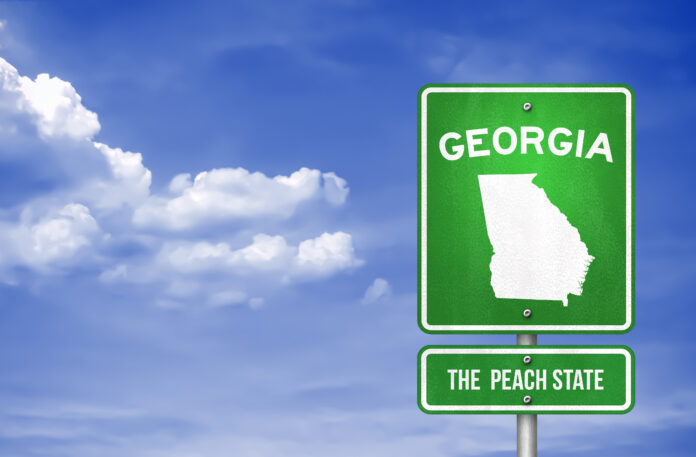Georgia became the first state in the nation to reopen its economy after a statewide closure due to COVID-19, and five weeks later there has been no reported surge.
Gov. Brian Kemp (R) issued a statewide shelter in place order on April 2, which authorized enforced social distancing and closure mandates to slow the spread of COVID-19. Kemp lifted the order April 24 when Georgia’s COVID-19 numbers began to decline, which allowed the opening of hair salons, gyms, bowling alleys, and barber shops, with dine-in restaurants and theaters to resume business a few days later. Some restrictions remained in place until May 20 for at-risk people, and the state is encouraging voluntary protective measures.
Reopening was the right call, says Kyle Wingfield, president and CEO of the Geogia Public Policy Foundation.
“Gov. Kemp made it clear from the beginning that he didn’t want to keep businesses closed any longer than was necessary,” Wingfield said. “In announcing the end of the ‘shelter in place’ order, the state achieved a sufficient downward trend in the infection rate and sufficient capacity in hospitals.”
Monitoring Progress
As of June 5, the Peach State had conducted more than half a million tests and determined 31 new cases, a new low comparable to cases reported in February. Georgia’s health department notes that reporting delays may skip preliminary data. There may also be cases of delayed testing or people who are sick and never had a confirmed diagnosis.
Cases of the novel coronavirus trended downward in the first half of May with an uptick in the second half of the month following the re-opening of most businesses in the state.
“It’s hard to know [if the increase] is because the virus is resurgent or because testing has increased dramatically,” Wingfield said. “It would appear to be the latter, as the percentage of positive tests remains lower than the 14 percent rate we were seeing in past weeks.
“It’s also noteworthy that hospital capacity remains sufficient for now,” Wingfield said. “We always knew there would be an increase in infections after some of the restrictions were lifted. At the moment, that increase appears to be manageable.”
The Benefits of Work
Although health must come first, a benefit of reopening has been the ability of Georgia residents to get back to work, says Buzz Brockway, vice president of the Georgia Center for Opportunity.
“Part of that is people’s ability to work and provide for their families and run their businesses,” Brockway said. “We’ve been supportive of what Governor Kemp has done. He has taken measured steps. He hasn’t used the full extent of the emergency powers that have been granted to him. When the data started to show positive trends, and the curve was flattening and hospitals were not being overrun, he began to slowly loosen the restrictions on businesses so they could reopen—with appropriate guidelines.”
“There are a lot of employees who can’t work from home,” Brockway said. “Hair dressers, bowling alleys, the people who are in those jobs by and large do not have large savings accounts and can’t sit at home indefinitely. While the checks the government sent out certainly help, they don’t go very far. Those folks are hit particularly hard. It can be easy for those who can work at home to forget that.”
Despite being the first state to reopen, it is too early to tell how much the state has suffered from the shutdowns, Wingfield says.
“What we do know is that Georgia has been hit very hard by unemployment claims, and state officials are expecting double-digit losses in revenue in the budget year that begins July 1, which of course reflects a belief that the economy has suffered greatly,” Wingfield said.
Ashley Bateman (bateman.ae@googlemail.com) writes from Alexandria, Virginia.




















